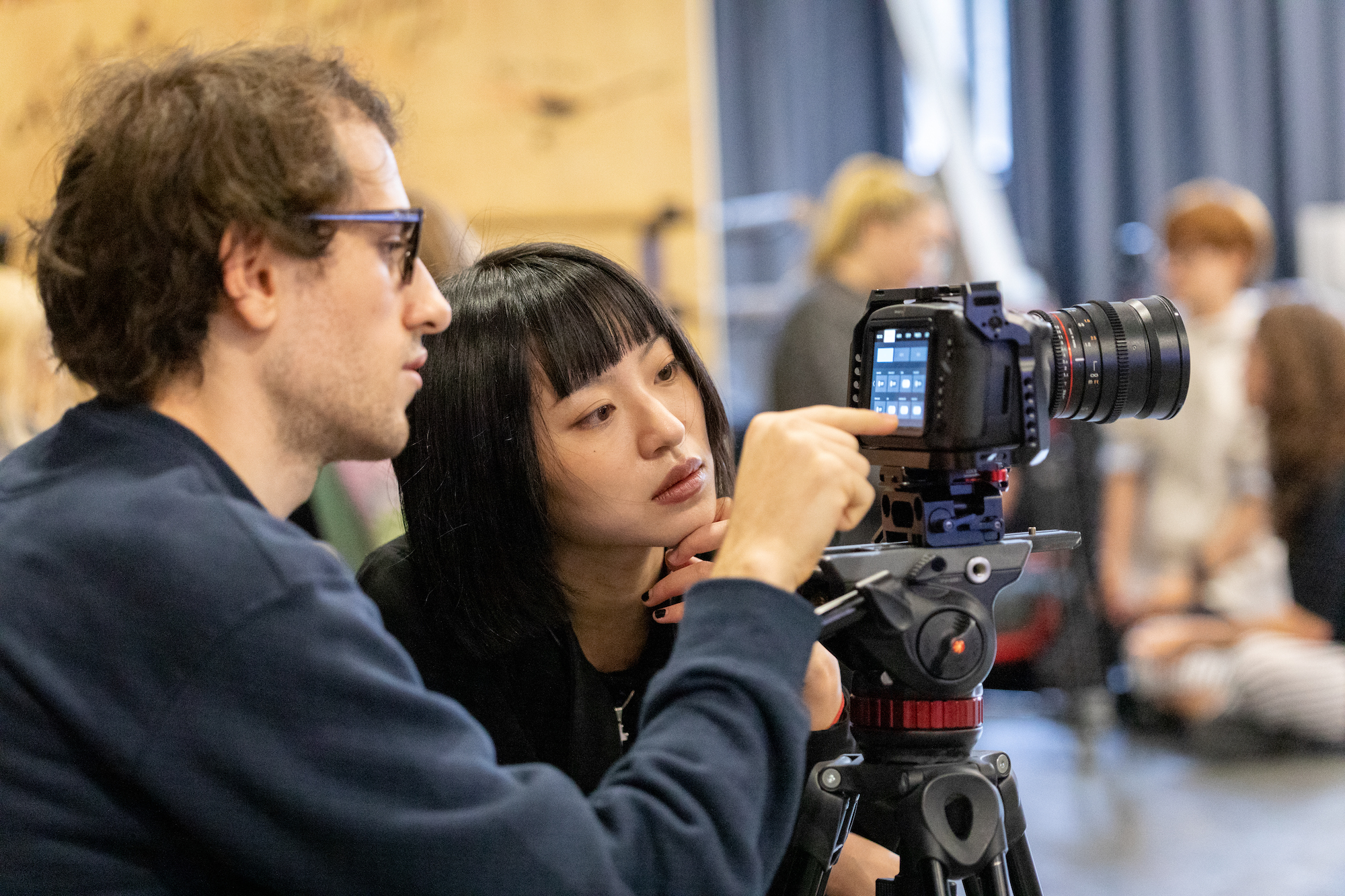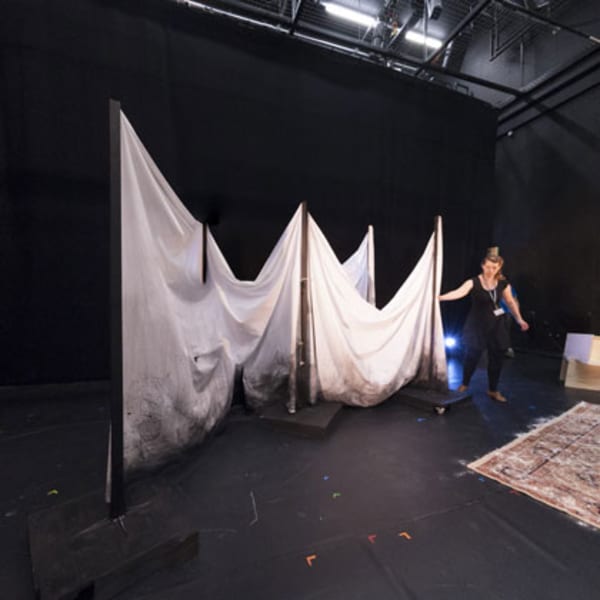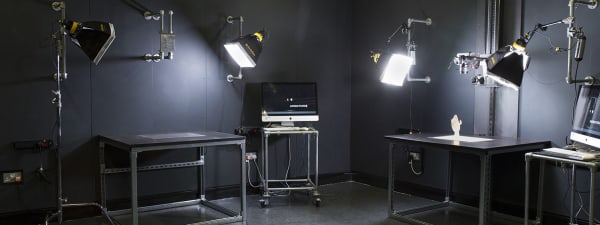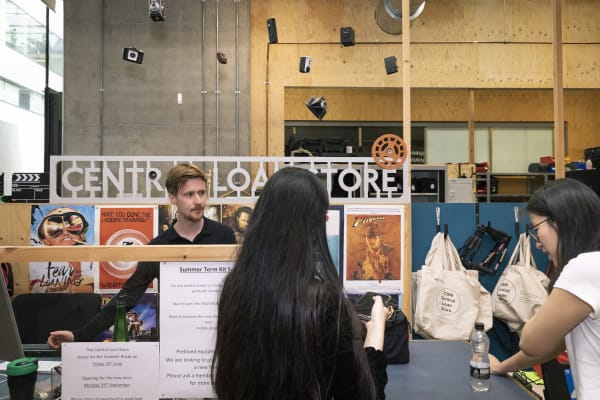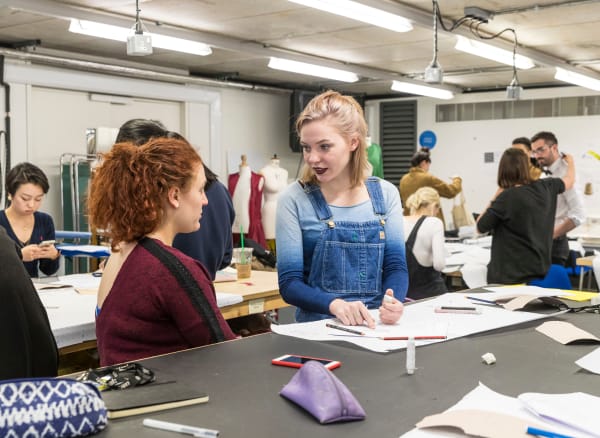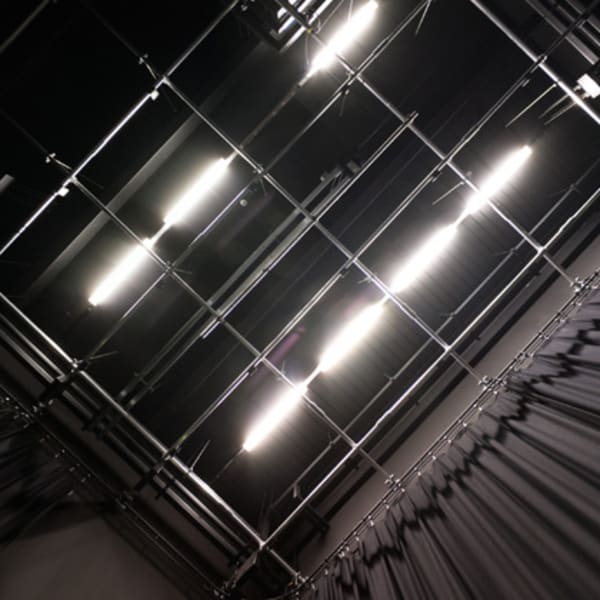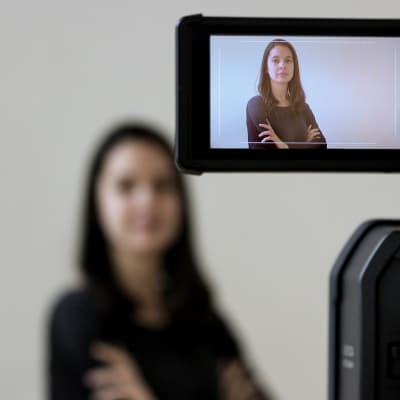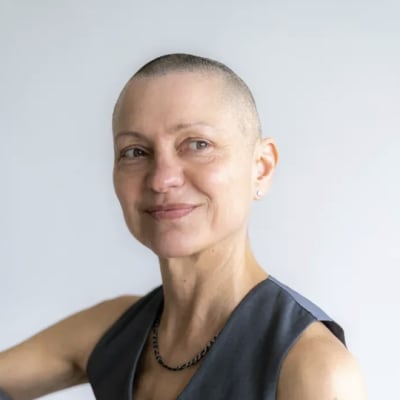Course units
Central Saint Martins is a site of intense cultural production, generating critical practice which frequently crosses discipline boundaries and intersects with areas of image-making, society and politics.
Grounded on critical histories and debates around social, political and environmental contexts for performance and moving image practice, you will progress through a variety of technical and production processes based on the experience of independent and collaborative making. This will culminate in a final point of realisation which is supported by critical analysis and reflection.
Central Saint Martins, as a college community, seeks to prioritise the urgencies relating to: identities and equity, climate ecologies, and publics and commons. In particular, that our community of staff and students actively pursue change in their sphere of influence that will impact and improve social justice, climate sustainability and cultural democracy. These are reflected in research themes across the college and in the College’s programme of course development. The MA Performance: Screen course sits within this environment and is motivated by these themes.
The course is structured into six units. This complete learning arc offers intense moments of individual and group production and project work. The programme works with our Knowledge Exchange team to source opportunities for off-site collaboration. Optional units midway through the course support you in choosing where to place your emphasis.
Unit 1: Film Practices (20 credits)
The initial practice block grounds you in the technical and practical aspects of single-camera audio-visual production. It encourages an expansion of knowledge through collaborative experimentation with different ideas and processes relating to camera, body and space. This unit will provide opportunity to develop skills in camera operation and cinematography, sound recording, lighting for video, editing, colour grading and audio post-production via practical workshops and conceptual experimentation. Privileging the body, outcomes for this unit might include experiments in live art, video-streaming, dance films, performance lectures or other forms of expanded cinema.
Unit 2: Cultures and Contexts (20 credits)
This unit introduces the contexts and critical values of contemporary and established screen formats via the analysis of key concepts and debates concerning the body and its relationship to performance and moving image practices. Your understanding of the history and theory of performance and moving image is developed through a weekly programme of critical and historical studies lectures and interactive talks core course staff and guest speakers. You will submit an individual written or audio-visual essay about a critical topic of your choice. This unit establishes the expectation that research interweaves with practice to support critical thinking and an awareness of creative opportunity.
Unit 3: Creation and Production (40 credits)
The emphasis then shifts to ideas around film form and individual approaches to the creation and production of lens-based performance and moving image work. This enables you to develop a greater understanding of storytelling, narrative, and film language. This Unit explores the wider conditions of global visual culture and interrogating how images are encountered, produced, and consumed. Outcomes for this unit might include single screen short films, multiscreen installations, or immersive, VR (Virtual Reality), AI (Artificial Intelligence), gaming or other online projects. Unit 2 engages students with the expanding field for film and non-conventional forms. Exploding the potential of narrative and the experiences of time. The unit also provides opportunity for the public sharing of work.
Unit 4: Option Units (40 credits) Choose either: 4a: Community and Collaboration or 4b: Practice in Context
Unit 4 runs across the final term of Year 1 and the first term of Year 2. Core teaching encourages and facilitates students in gathering experience and evidence of learning from independent enquiry (practice) and by engaging with external communities in the making and public presentation of work. The two options are to pursue either applied participatory practices or engage with focused research themes.
The Community and Collaboration option considers ideas around performativity, activism, ethical representation, and models of participatory practice. It focuses on how contemporary moving image can reframe relationships between filmmaker and subject. You will collectively interrogate how stories about and with publics are performed, authored, and disseminated to audiences within and beyond the community in question. Outcomes for this elective might include participatory films, lens-based performance/ installation works, filmmaking workshops, multi-camera live streamed events or other forms of visual research.
The Practice in Context option considers a body of moving image or lens-based performance work of your choice. The unit asks you to critically evaluate and contextualise through an extended research document or equivalent in negotiation with the unit tutor. The research focus should complement your individual Major Project. The unit provides the opportunity to develop a larger set of questions and ideas using skills, knowledge, and understanding acquired over the course.
Unit 5: Major Project (60 credits)
The Major Project builds on your individual interest and knowledge acquired from previous units to produce a significant body of work. You will conduct in-depth research and experimentation and exercise creative authorship through narrative composition, storytelling, sited practice, and editing. On completion of the unit, you will be able to evidence a strong understanding of potential audiences, choreographies of distribution and circulation as well as the ability to critically self-evaluate your work.
Important note concerning academic progression through your course: If you are required to retake a unit you will need to cease further study on the course until you have passed the unit concerned. Once you have successfully passed this unit, you will be able to proceed onto the next unit. Retaking a unit might require you to take time out of study, which could affect other things such as student loans or the visa status for international students.
CSM Academic Support is delivered by a team of academics and practitioners working alongside your course to help you progress and achieve your maximum potential as a student. Academic Support can help you to develop your skills in different areas, including critical thinking, research and writing, time management, presentations and working independently and collaboratively. These may be offered as part of your timetabled classes or as bookable tutorials and workshops.
Mode of study
MA Performance: Screen is offered as an extended full-time course which runs for 60 weeks over two academic years between September and June. You will be expected to commit 30 hours per week to study and your making practice, which includes teaching time and independent study, to facilitate part-time employment, work placements and caring responsibilities.
Credit and award requirements
The course is credit-rated at 180 credits. On successfully completing the course, you will gain a Master of Arts (MA degree). Under the Framework for Higher Education Qualifications, an MA is Level 7. All units must be passed to achieve the MA, but the classification of the award is derived from the mark for the final unit only. If you are unable to continue the course, a Postgraduate Certificate (PG Cert) will normally be offered following the successful completion of 60 credits, or a Postgraduate Diploma (PG Dip) following the successful completion of 120 credits.
